Table of Contents
- Introduction
- Is lithium battery better for a golf cart?
- 1. Longer lifespan
- 2. Higher energy density
- 3. Faster charging
- 4. Maintenance-free operation
- 1. Higher upfront cost
- 2. Sensitivity to extreme temperatures
- 3. Charging requirements
- How many years does a lithium golf cart battery last?
- How much does it cost to convert a golf cart to a lithium battery?
- Can you replace regular batteries with lithium batteries in a golf cart?
- 1. Voltage and capacity
- 2. Battery management system (BMS)
- 3. Physical fit and compatibility
- 4. Charging requirements
- Do you need a special charger for lithium golf cart batteries?
- Will a golf cart go faster with a lithium battery?
- What are the disadvantages of lithium golf cart batteries?
- How far can a golf cart go with a lithium battery?
- What are the disadvantages of lithium golf cart batteries?
- 1. Higher upfront cost
- 2. Sensitivity to extreme temperatures
- 3. Complex charging requirements
- 4. Safety considerations
- 5. Limited availability
- Will a golf cart go faster with lithium battery?
- Should I leave my lithium golf cart plugged in all the time?
- Can you overcharge a lithium golf cart battery?
- How far can a golf cart go with lithium battery?
- Why are lithium golf cart batteries so expensive?
- How many lithium batteries do I need for a 48 volt golf cart?
- Is it worth converting golf cart to AC?
- Conclusion
Introduction
Golf carts have come a long way in terms of battery technology, and one of the most significant advancements is the use of lithium batteries. In this blog post, we will explore the benefits of lithium batteries for golf carts and answer common questions regarding their performance, lifespan, cost, and more.

Is lithium battery better for a golf cart?
Indeed, lithium batteries offer several advantages that make them an attractive option for golf cart owners. However, it is important to consider your specific needs and circumstances when determining if a lithium battery is truly the better choice for your golf cart.
Let us explore some of the advantages of lithium batteries for golf carts:
1. Longer lifespan
Lithium batteries generally have a longer lifespan compared to traditional lead-acid batteries. With proper care and maintenance, lithium batteries can last 8-12 years, while lead-acid batteries typically last 3-5 years. This extended lifespan can result in cost savings over time.
2. Higher energy density
Lithium batteries have a higher energy density, meaning they can store more energy in a smaller and lighter package. This can lead to improved performance, increased range, and reduced weight on the golf cart.
3. Faster charging
Lithium batteries can be charged at a faster rate compared to lead-acid batteries. This allows for shorter charging times, reducing downtime and allowing you to get back on the golf course sooner.
4. Maintenance-free operation
Unlike lead-acid batteries that require regular maintenance, such as checking electrolyte levels and cleaning terminals, lithium batteries are typically maintenance-free. This can save you time and effort in battery upkeep.
However, it is important to consider some factors when deciding if a lithium battery is the better option for your golf cart:
1. Higher upfront cost
Lithium batteries generally have a higher initial investment compared to lead-acid batteries. It's important to assess whether the long-term benefits outweigh the upfront cost based on your usage and budget.
2. Sensitivity to extreme temperatures
Lithium batteries can be sensitive to extreme temperatures, both hot and cold. It is important to operate and store them within the recommended temperature range to maintain optimal performance and longevity.
3. Charging requirements
Lithium batteries require specific charging parameters and compatible chargers. Using improper chargers can lead to inefficient charging or potential damage to the battery. Ensure you have the appropriate charging equipment for lithium batteries.
To determine if a lithium battery is better for your golf cart, carefully evaluate your priorities, budget, and specific usage requirements. Consider factors such as lifespan, performance, charging needs, and overall cost-effectiveness. It may be beneficial to consult with a reputable golf cart expert or battery specialist to help you make an informed decision based on your unique circumstances.
How many years does a lithium golf cart battery last?
On average, a well-maintained lithium golf cart battery can last anywhere from 8 to 12 years. However, it is important to note that the actual lifespan of a lithium battery can vary based on various factors.
Proper maintenance and care play a crucial role in maximizing the lifespan of a lithium golf cart battery. Here are a few considerations to ensure optimal battery performance and longevity:
1. Charging practices
Follow the manufacturer's recommendations for charging the lithium battery. Avoid overcharging or deep discharging the battery, as this can impact its overall lifespan. Using a charger specifically designed for lithium batteries is essential.
2. Temperature management
Keep the lithium battery within the recommended temperature range. Exposure to extreme temperatures, both hot and cold, can affect the battery's performance and lifespan. Storing the battery in a cool, dry location when not in use can help prolong its life.
3. Regular maintenance
While lithium batteries require less maintenance than traditional lead-acid batteries, it is still important to periodically inspect the battery for any signs of damage, ensure proper terminal connections, and clean the battery if necessary.
4. Usage patterns
Heavy use and frequent deep discharges can impact the lifespan of a lithium battery. It is important to consider your golf cart's usage patterns and adjust driving habits to maximize the battery's lifespan. Avoid excessive acceleration or abrupt stops whenever possible.
It's important to remember that the lifespan of a lithium golf cart battery is an estimate based on average conditions and usage. Individual circumstances, such as charging practices, environmental factors, and overall battery health, can influence the actual lifespan.
Regularly monitoring the battery's performance and seeking professional assistance if any issues arise can help ensure the longevity of your lithium golf cart battery.
How much does it cost to convert a golf cart to a lithium battery?
Converting a golf cart to a lithium battery setup offers advantages such as weight reduction and maintenance-free operation. The cost of a lithium conversion kit can range around $1,000 - $3000, and an additional charger may be required, adding approximately $299 to the total cost.
Can you replace regular batteries with lithium batteries in a golf cart?
Yes, it is indeed possible to replace regular batteries, typically lead-acid batteries, with lithium batteries in a golf cart. However, there are a few considerations to keep in mind before proceeding with such a replacement.
1. Voltage and capacity
Ensure that the lithium batteries you choose are of the appropriate voltage to match the requirements of your golf cart. Most golf carts operate on a 36-volt or 48-volt system, so you would need to select lithium batteries that can provide the necessary voltage. Additionally, consider the capacity (Ah) of the lithium batteries to ensure they can deliver the required power for your golf cart's intended use.
2. Battery management system (BMS)
Lithium batteries require a battery management system to monitor and regulate the charging and discharging processes. This system helps prevent overcharging, deep discharging, and other potential issues that could affect the lifespan and performance of the lithium batteries. Ensure that the BMS is compatible with your golf cart and integrated properly during the replacement process.
3. Physical fit and compatibility
Lithium batteries may have different physical dimensions and terminal configurations compared to regular batteries. Ensure that the lithium batteries you choose can fit properly in the battery compartment of your golf cart and that the terminal connections align with the existing wiring.
4. Charging requirements
Lithium batteries have specific charging requirements, including voltage and current limits. Ensure that your golf cart's charging system is compatible with lithium batteries or consider replacing it with a charger specifically designed for lithium batteries.
It is important to note that replacing regular batteries with lithium batteries in a golf cart may require additional adjustments or modifications to the electrical system. It is advisable to consult with a knowledgeable golf cart specialist or battery expert to ensure compatibility, proper installation, and safe operation.
Each golf cart model may have specific considerations, so seeking professional guidance will help ensure a successful battery replacement and the optimal performance of your golf cart.
Do you need a special charger for lithium golf cart batteries?
Yes, you will need a charger compatible with LiFePO4 lithium batteries. Many lead-acid chargers are not suitable because they do not provide the proper voltage output. The charger voltage should match the battery voltage or be less, typically ranging from 14.2 to 14.6 volts for lithium batteries.
Will a golf cart go faster with a lithium battery?
Golf carts equipped with lithium batteries feel lighter, faster, and provide smoother acceleration. While golf carts are speed-limited, the higher voltage of lithium batteries delivers more power, resulting in quicker acceleration and the ability to maintain power for longer periods.
What are the disadvantages of lithium golf cart batteries?
Lithium batteries offer numerous advantages, but they do have some limitations. They are generally more expensive upfront compared to lead-acid batteries. Additionally, improper handling or extreme temperatures can impact their performance and lifespan.
How far can a golf cart go with a lithium battery?
The range of a golf cart equipped with lithium batteries can vary based on the battery size and configuration. The lithium battery industry claims a single charge can allow for a range of up to 100 miles, but actual range will depend on factors such as terrain, cart weight, and driving conditions.
What are the disadvantages of lithium golf cart batteries?
Ah, let us discuss the disadvantages of lithium golf cart batteries, for they do exist, though they may not overshadow their advantages. Here are a few points to consider:
1. Higher upfront cost
Compared to traditional lead-acid batteries, lithium batteries tend to have a higher initial investment. This can deter some golf cart owners who may be more budget-conscious.
2. Sensitivity to extreme temperatures
Lithium batteries can be sensitive to both high and low temperatures. Extreme heat or cold can affect their performance and lifespan. It's crucial to store and operate lithium batteries within their recommended temperature range.
3. Complex charging requirements
While lithium batteries offer faster charging times, they require specific charging parameters. The charger used must be compatible with LiFePO4 lithium batteries and provide the correct voltage output. Using incompatible chargers can lead to inefficient charging or potential damage to the battery.
4. Safety considerations
Although lithium batteries are generally safe when used properly, mishandling or improper charging practices can pose safety risks. It is important to follow manufacturer guidelines and take necessary precautions to ensure safe usage.
5. Limited availability
The widespread adoption of lithium batteries in the golf cart industry is still relatively new. As a result, availability may be limited compared to more established battery types. This can impact accessibility and pricing in certain regions.
While these disadvantages should be considered, it is essential to weigh them against the numerous benefits that lithium batteries offer. Each golf cart owner should assess their specific needs, budget, and operating conditions to determine if the advantages outweigh the disadvantages for their particular situation.
Will a golf cart go faster with lithium battery?
A question about speed and lithium batteries, a topic that often piques curiosity. While a lithium battery alone cannot directly increase the maximum speed of a golf cart, it can contribute to a perceived increase in speed and overall performance.
You see, lithium batteries offer certain advantages that can enhance the acceleration and power delivery of a golf cart. Their higher voltage and energy density allow for more efficient power output, resulting in improved acceleration and responsiveness. This can give the impression of a faster golf cart.
Furthermore, lithium batteries tend to be lighter than traditional lead-acid batteries. This reduction in weight can positively impact the overall weight distribution of the golf cart, potentially leading to improved handling and maneuverability on the course.
However, it is important to note that golf carts are typically designed with speed limitations for safety reasons. The speed of a golf cart is typically regulated by the controller or other governing mechanisms, and exceeding these limits can be unsafe and potentially illegal.
To summarize, while a lithium battery alone cannot directly increase the maximum speed of a golf cart, it can contribute to improved acceleration and power delivery, which can give the perception of a faster golf cart. Always remember to prioritize safety and adhere to the designated speed limits while enjoying your golf cart adventures.
Should I leave my lithium golf cart plugged in all the time?
The question of leaving your lithium golf cart battery plugged in, a matter of charging etiquette. When it comes to lithium batteries, there is no need to fret about leaving them plugged in all the time. You see, modern lithium batteries used in golf carts are equipped with advanced battery management systems that ensure safe and efficient charging.
These battery management systems are designed to monitor the battery's charge level and automatically cut off the flow of electricity once the battery reaches its optimal charge. This prevents overcharging and protects the battery from potential damage.
So, feel free to leave your lithium golf cart battery plugged in when not in use. It will simply remain in a maintenance or "float" charge state, ensuring that it is ready for your next golfing adventure. However, I must remind you to use a charger specifically designed for lithium batteries and follow the manufacturer's recommendations for charging practices.
Remember, while leaving your lithium battery plugged in is generally safe, it is always a good practice to periodically inspect the battery and charger for any signs of damage or malfunction. This will help ensure the longevity and optimal performance of your lithium golf cart battery.
Can you overcharge a lithium golf cart battery?
Modern lithium golf cart batteries typically incorporate a battery management system (BMS) that monitors the battery's voltage and temperature during the charging process. When the battery reaches its optimal charge level, the BMS automatically cuts off the flow of electricity, preventing overcharging.
This means that, under normal circumstances, you should not be able to overcharge a lithium golf cart battery. The built-in safeguards within the battery and charger work together to ensure safe and efficient charging.
However, it is crucial to use a charger specifically designed for lithium batteries and follow the manufacturer's recommendations for charging practices. Using an incompatible charger or deviating from the recommended charging parameters can potentially override the built-in safeguards and lead to overcharging or other safety hazards.
How far can a golf cart go with lithium battery?
Lithium batteries, with their higher energy density, typically offer greater range compared to traditional lead-acid batteries. On average, a golf cart with a lithium battery can travel anywhere from 80 to 100 miles on a single charge, depending on the aforementioned factors.
It is important to note that this estimation is a general range and can vary based on individual circumstances. Hilly terrains, frequent stops and starts, rough driving conditions, and excessive loads can reduce the overall range.
To maximize the range of a golf cart with a lithium battery, it is advisable to drive efficiently, avoid excessive acceleration and braking, and maintain an appropriate tire pressure. Regularly charging the battery to its optimal level and ensuring it is in good condition can also contribute to achieving the maximum range.
Why are lithium golf cart batteries so expensive?
The price of lithium golf cart batteries can indeed be higher compared to traditional lead-acid batteries, and there are a few reasons underlying this discrepancy.
Firstly, the production of lithium batteries involves more advanced technology and materials. The sophisticated chemistry and manufacturing processes required for lithium batteries contribute to higher production costs.
Additionally, lithium batteries offer several advantages over lead-acid batteries. They have a longer lifespan, often lasting 8-12 years, compared to the 3-5 years of lead-acid batteries. This extended lifespan, combined with improved performance and efficiency, justifies the higher upfront cost for many golf cart owners.
Furthermore, the demand for lithium batteries in various industries has been increasing, including electric vehicles and portable electronics. This rising demand, coupled with limited production capacity, can impact the cost of lithium batteries.
As with any technology, it is common for prices to decrease over time as production processes become more efficient and economies of scale are achieved. So, while lithium golf cart batteries may be more expensive currently, it is possible that their costs will decrease as the technology becomes more widespread.
In the end, it's important to consider the long-term benefits and value that lithium batteries offer. Their performance, lifespan, and overall cost-effectiveness should be evaluated when making a decision about investing in a lithium golf cart battery.
How many lithium batteries do I need for a 48 volt golf cart?
The number of lithium batteries required for a 48-volt golf cart depends on the voltage rating of each individual lithium battery.
To achieve a 48-volt system, you would typically need four 12-volt lithium batteries wired in series. When batteries are connected in series, their voltages are summed up. So, four 12-volt batteries, each with a nominal voltage of 3.2 volts, would add up to a total of 12.8 volts per battery, resulting in a 48-volt system when connected in series.
It's important to note that the specific voltage rating of lithium batteries can vary, so it's essential to check the specifications of the batteries you intend to use to ensure they are compatible with your golf cart's electrical system requirements.
Additionally, it's important to consider other factors such as battery capacity (Ah), physical size, weight, and compatibility with your golf cart's existing electrical components when selecting the appropriate lithium batteries for your 48-volt golf cart.
If you have any doubts or need assistance in determining the right battery configuration for your specific golf cart, I recommend consulting with a knowledgeable expert or referring to your golf cart's manufacturer guidelines for battery selection and installation.
Is it worth converting golf cart to AC?
Converting a golf cart from DC (direct current) to AC (alternating current) power can indeed offer certain benefits, but it is important to evaluate whether it is worth the investment based on your specific needs and circumstances.
Here are a few points to consider when contemplating a golf cart conversion to AC:
1. Performance
AC-powered golf carts generally offer improved torque and acceleration compared to their DC counterparts. This can result in a more responsive and powerful driving experience, particularly on hilly terrains or when carrying heavier loads.
2. Efficiency
AC motors are typically more energy-efficient than DC motors, meaning they can provide greater range and longer battery life. This can be advantageous for those who require extended periods of use or desire a more eco-friendly option.
3. Cost
Converting a golf cart from DC to AC can involve a significant investment, including the cost of the AC motor, controller, and associated components. It's important to evaluate whether the potential performance and efficiency gains justify the upfront expense.
4. Maintenance and Availability
While AC-powered golf carts can offer benefits, it's important to consider the availability of AC-specific components and the potential need for specialized maintenance or repairs. Ensure that you have access to appropriate support and parts for the converted system.
Ultimately, the decision to convert a golf cart to AC power depends on your specific requirements, budget, and desired performance. It may be beneficial to consult with a knowledgeable electric vehicle specialist or golf cart conversion expert to assess the feasibility and potential benefits of such a conversion for your specific golf cart model.
Remember, each golf cart owner's needs and preferences are unique, so it's important to carefully consider all factors before proceeding with a conversion to ensure the investment aligns with your goals and expectations.
Remember, the range of a golf cart is just one aspect to consider when evaluating battery performance. It is essential to assess other factors, such as battery lifespan, charging time, and overall performance, to make an informed decision when choosing a lithium battery for your golf cart adventures.
To maintain the longevity and performance of your lithium golf cart battery, it is always wise to adhere to the manufacturer's instructions and guidelines. Regularly inspect the battery and charger for any signs of damage or malfunction, and never hesitate to consult with a trusted expert in lithium battery technology if you have any concerns or questions.
Conclusion
Lithium batteries offer significant advantages for golf carts, including faster charging times, longer lifespans, and improved performance. While they may require a higher upfront investment, their benefits in terms of efficiency, weight reduction, and maintenance-free operation make them a compelling choice for golf cart owners looking to enhance their experience on the course.


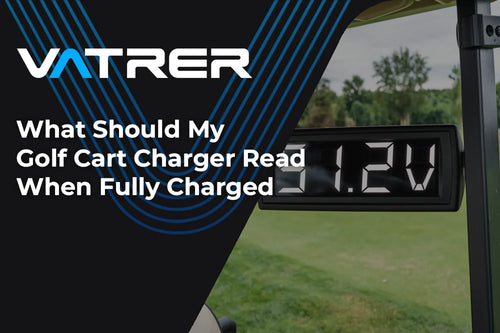
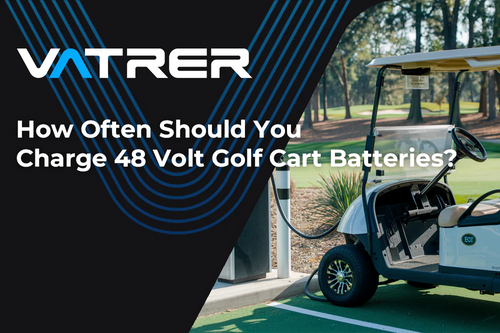

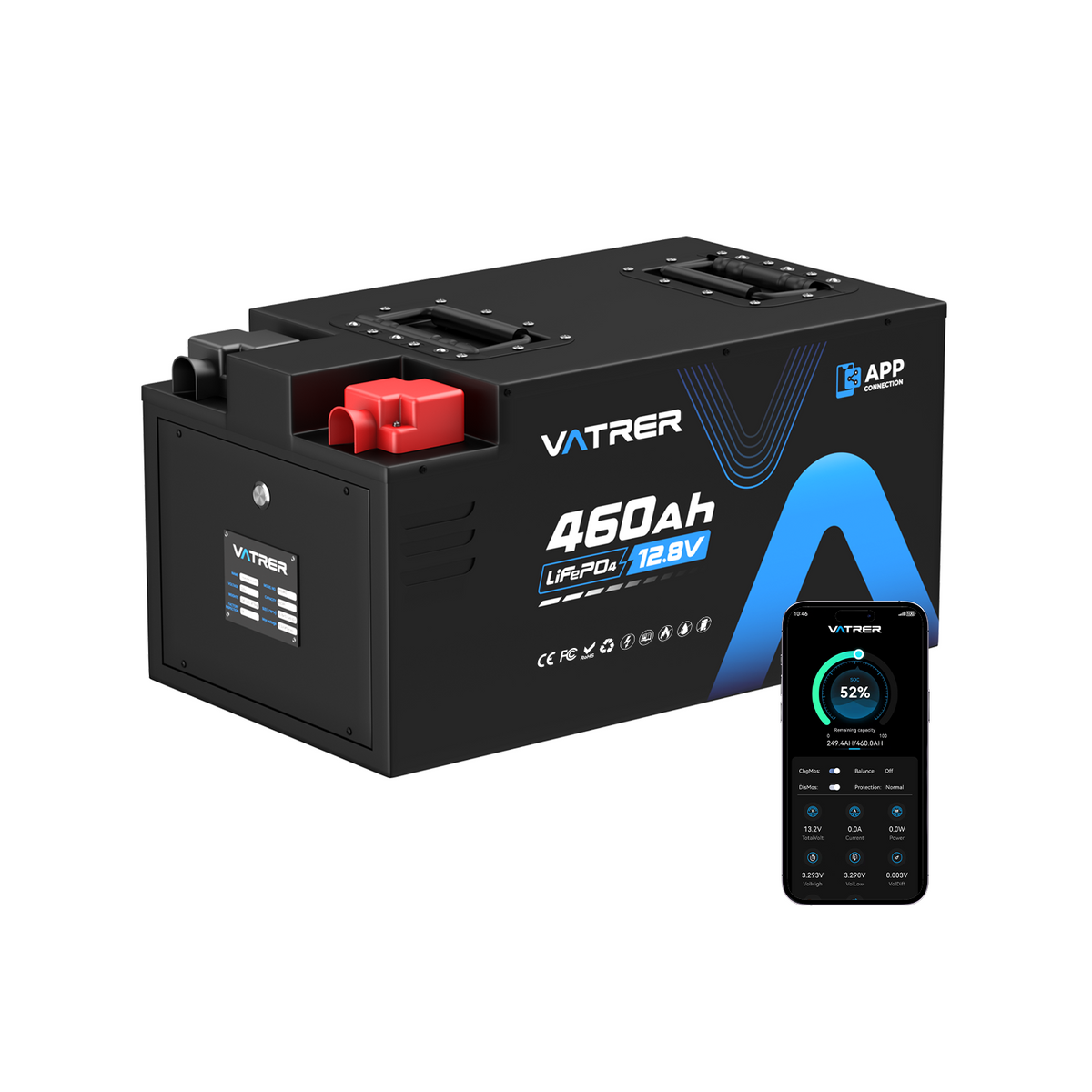
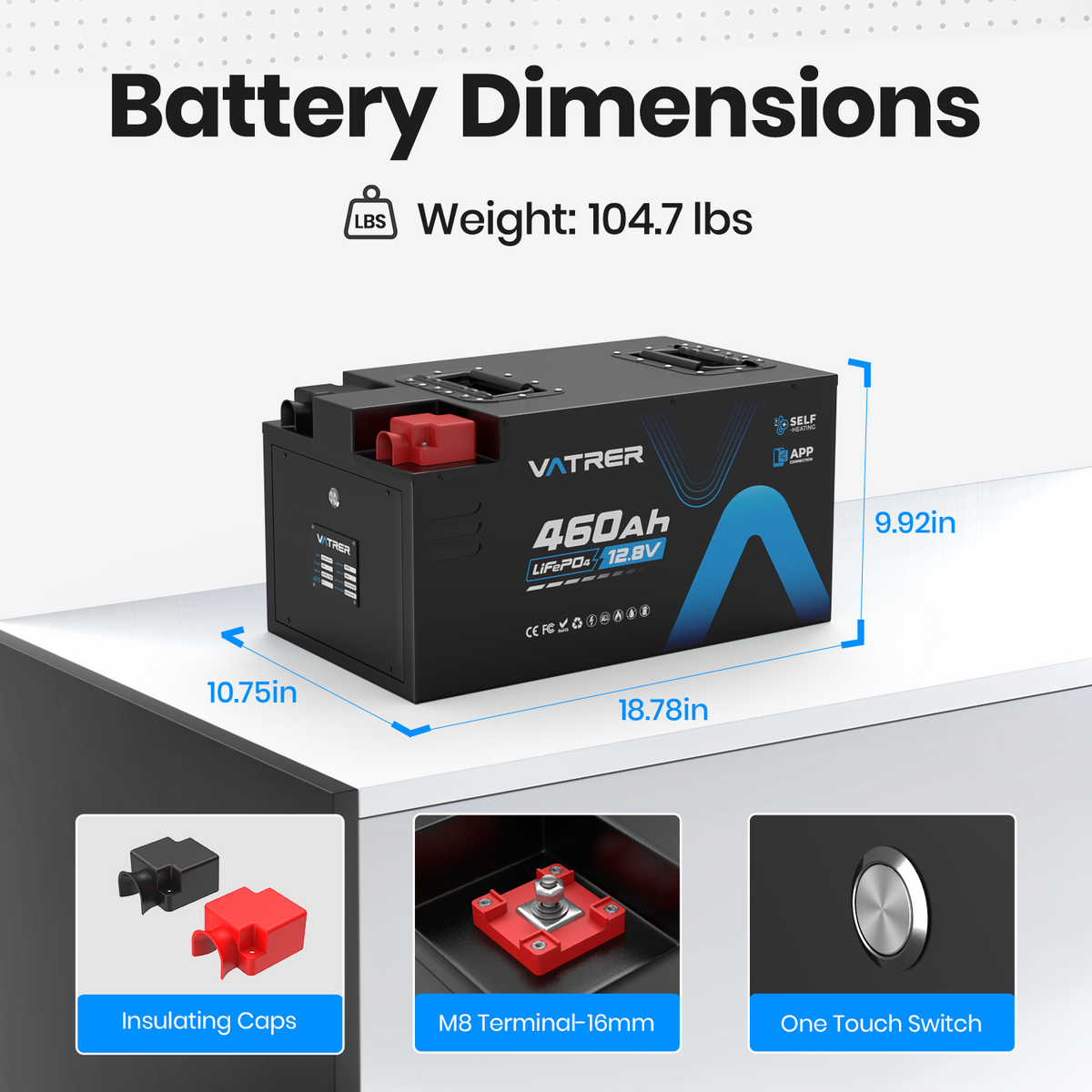
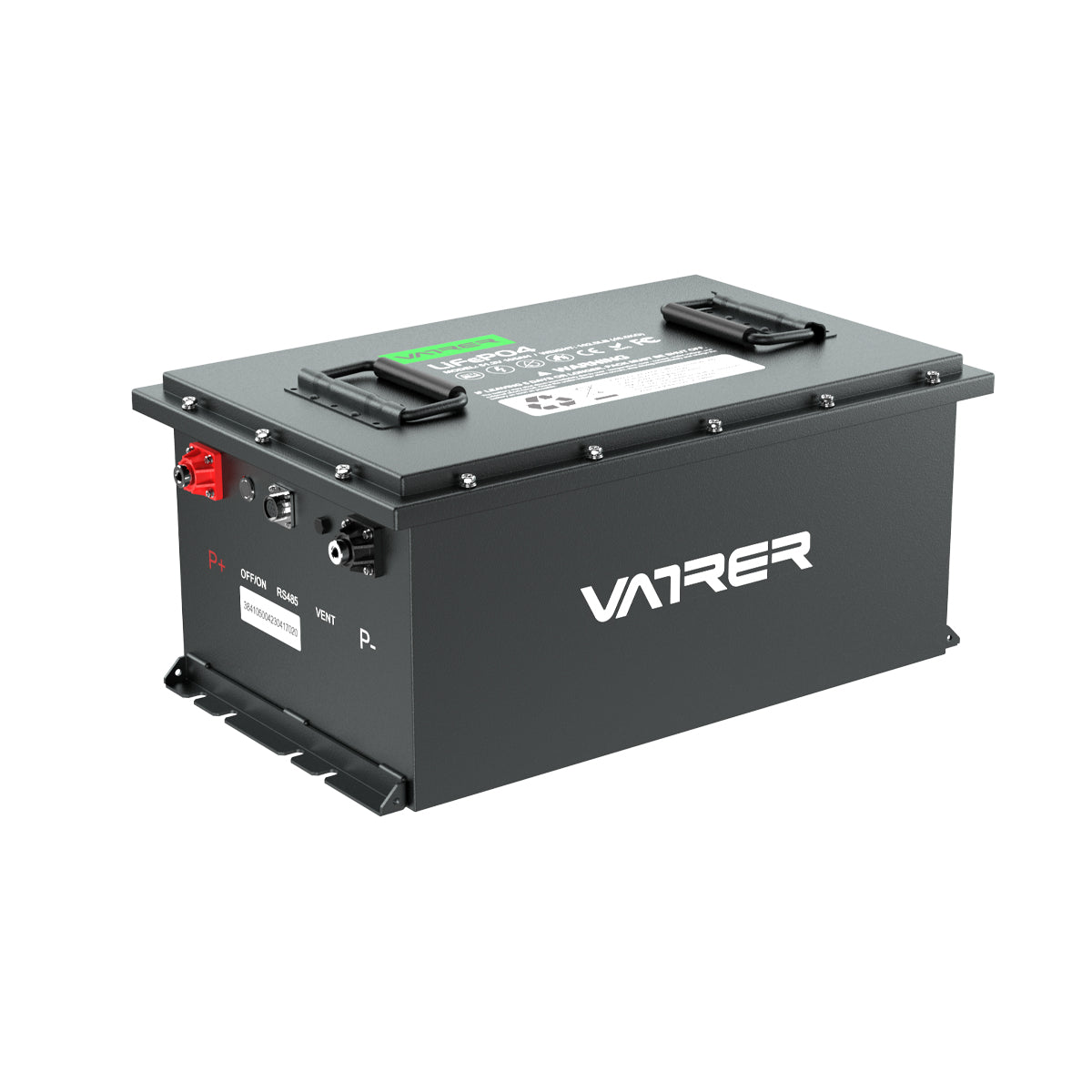
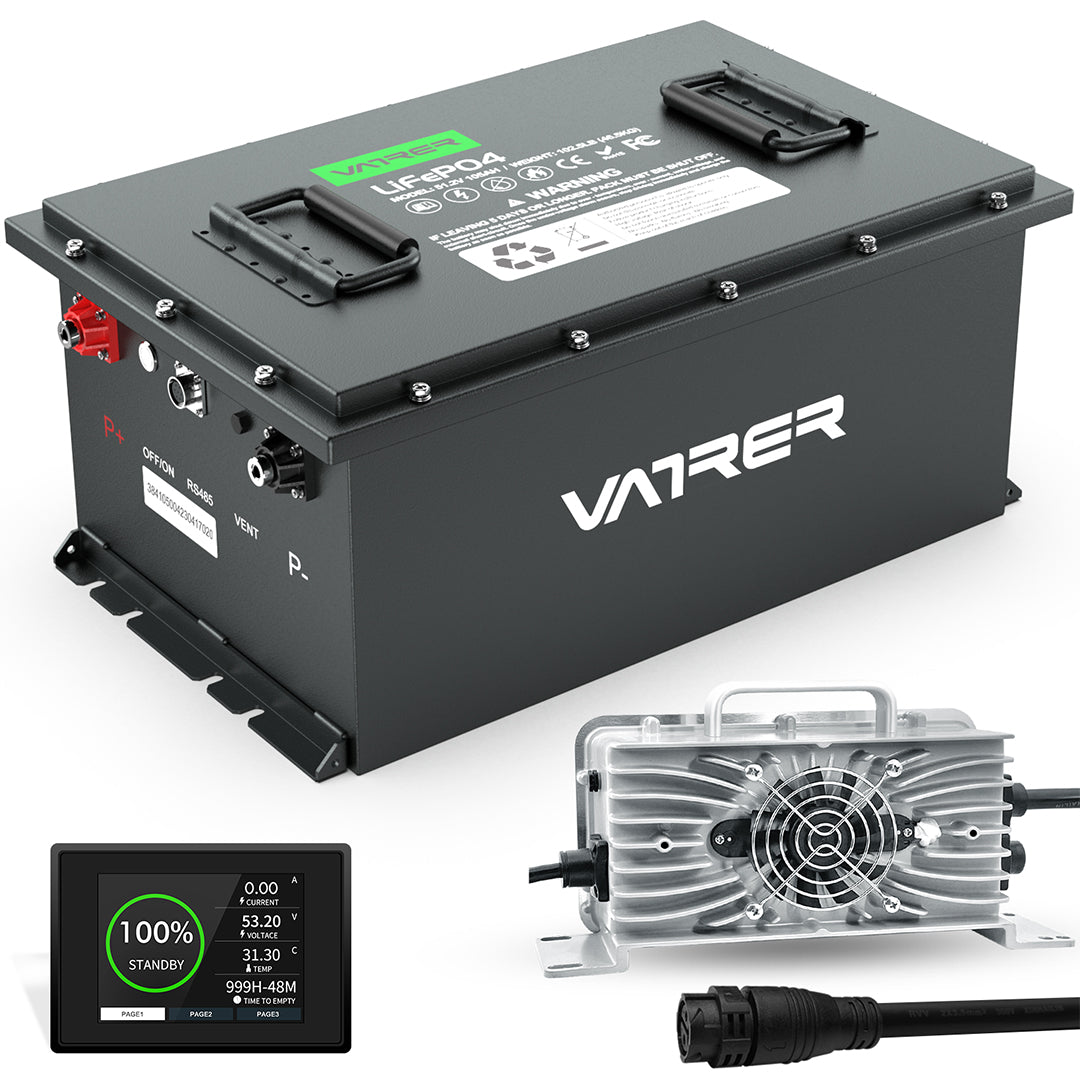
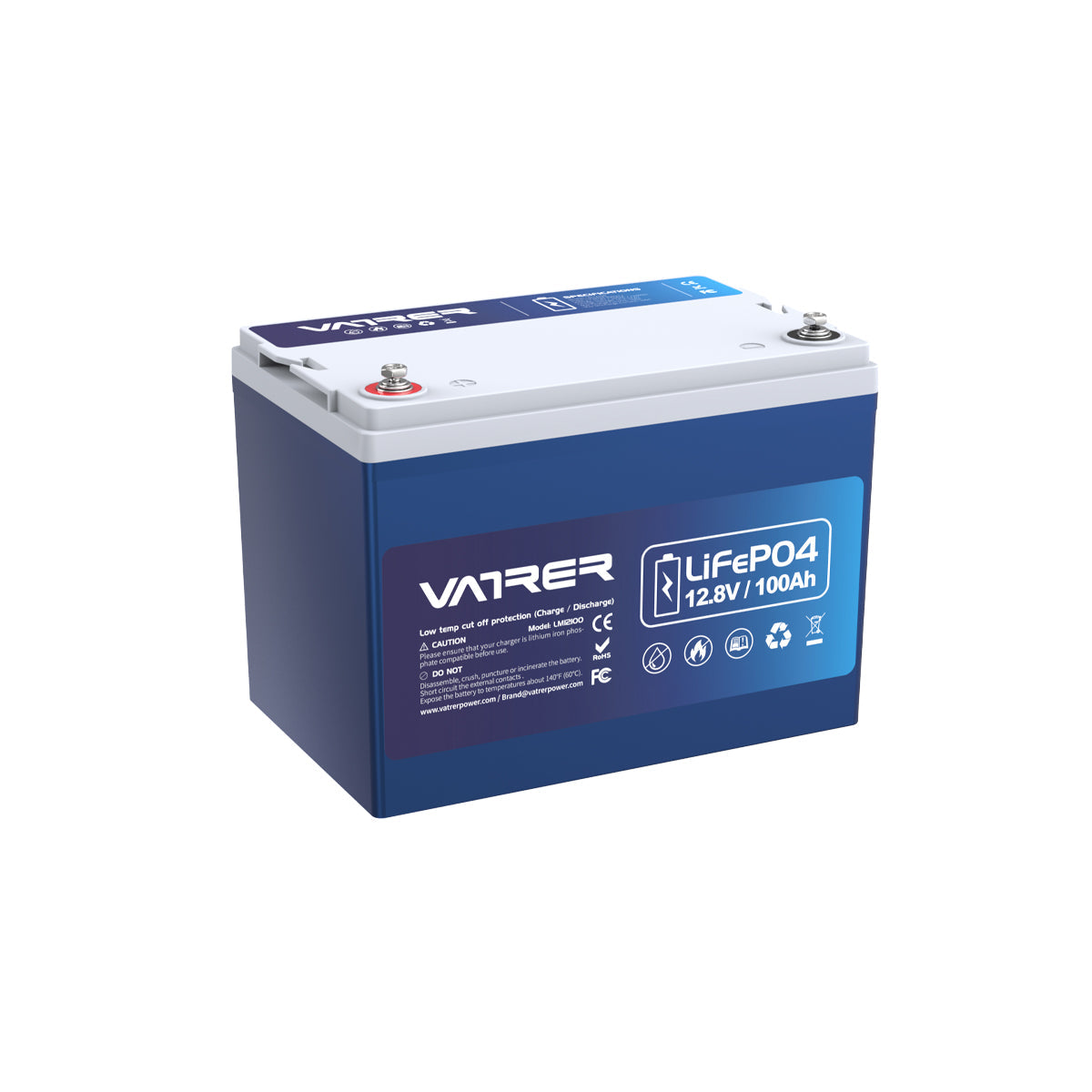
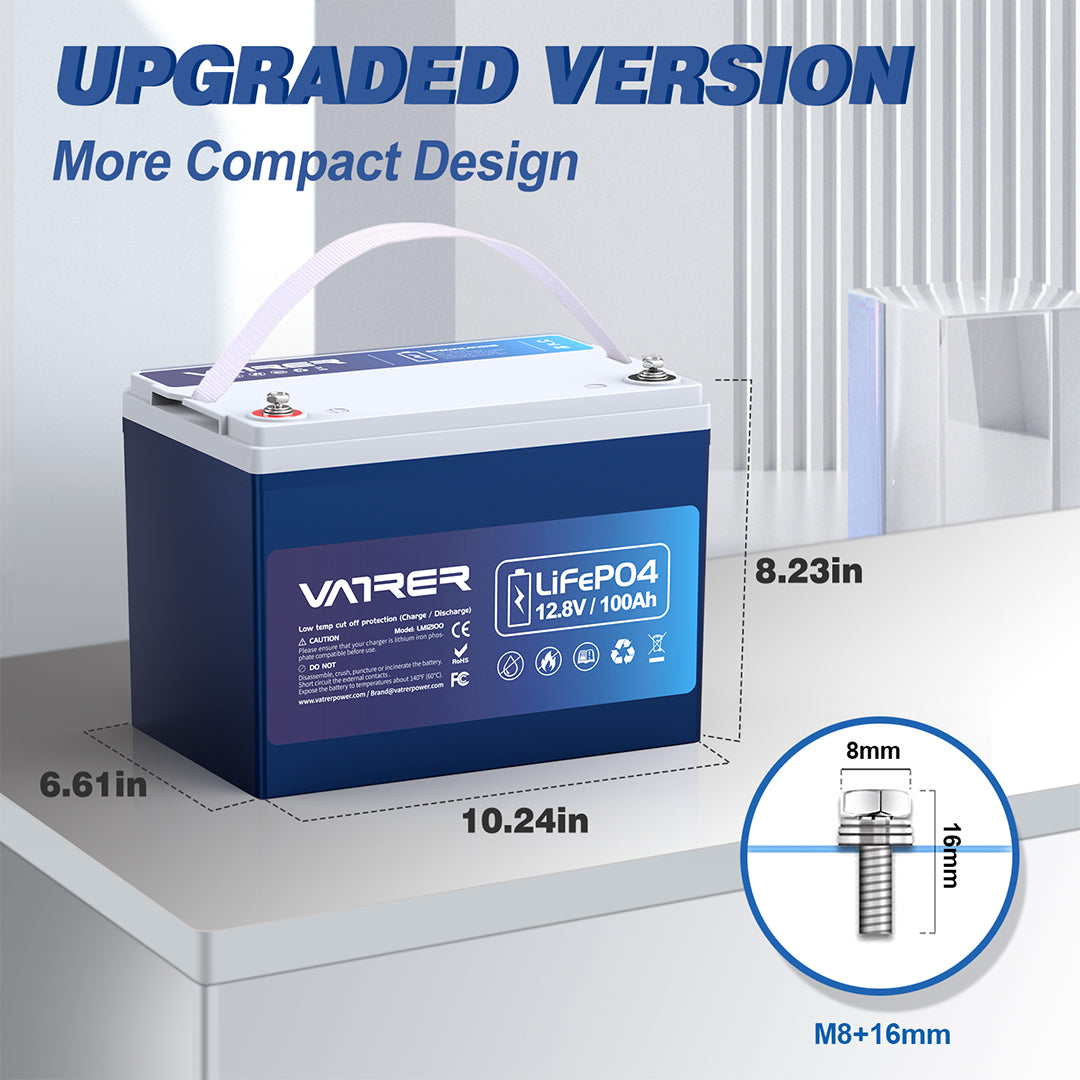
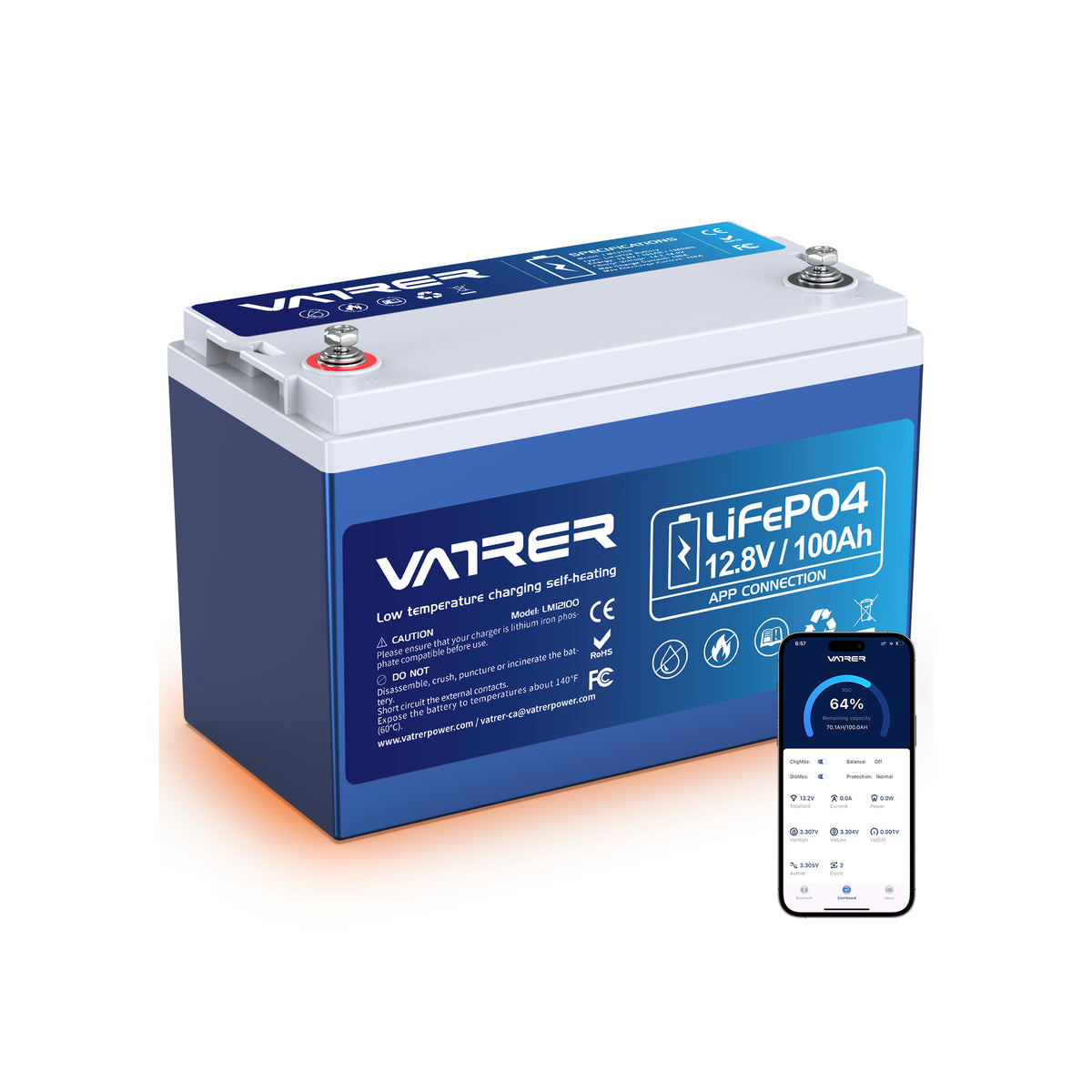
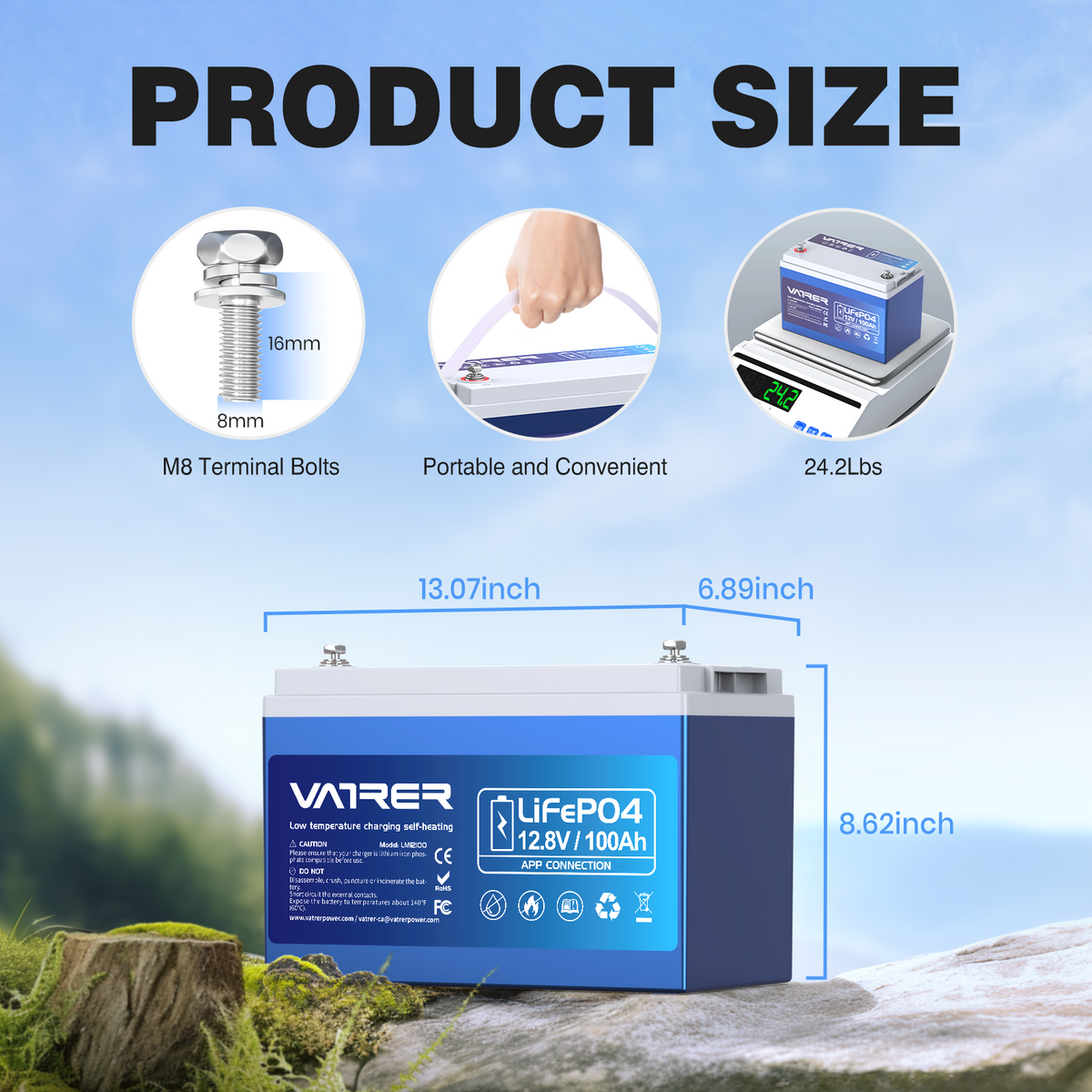
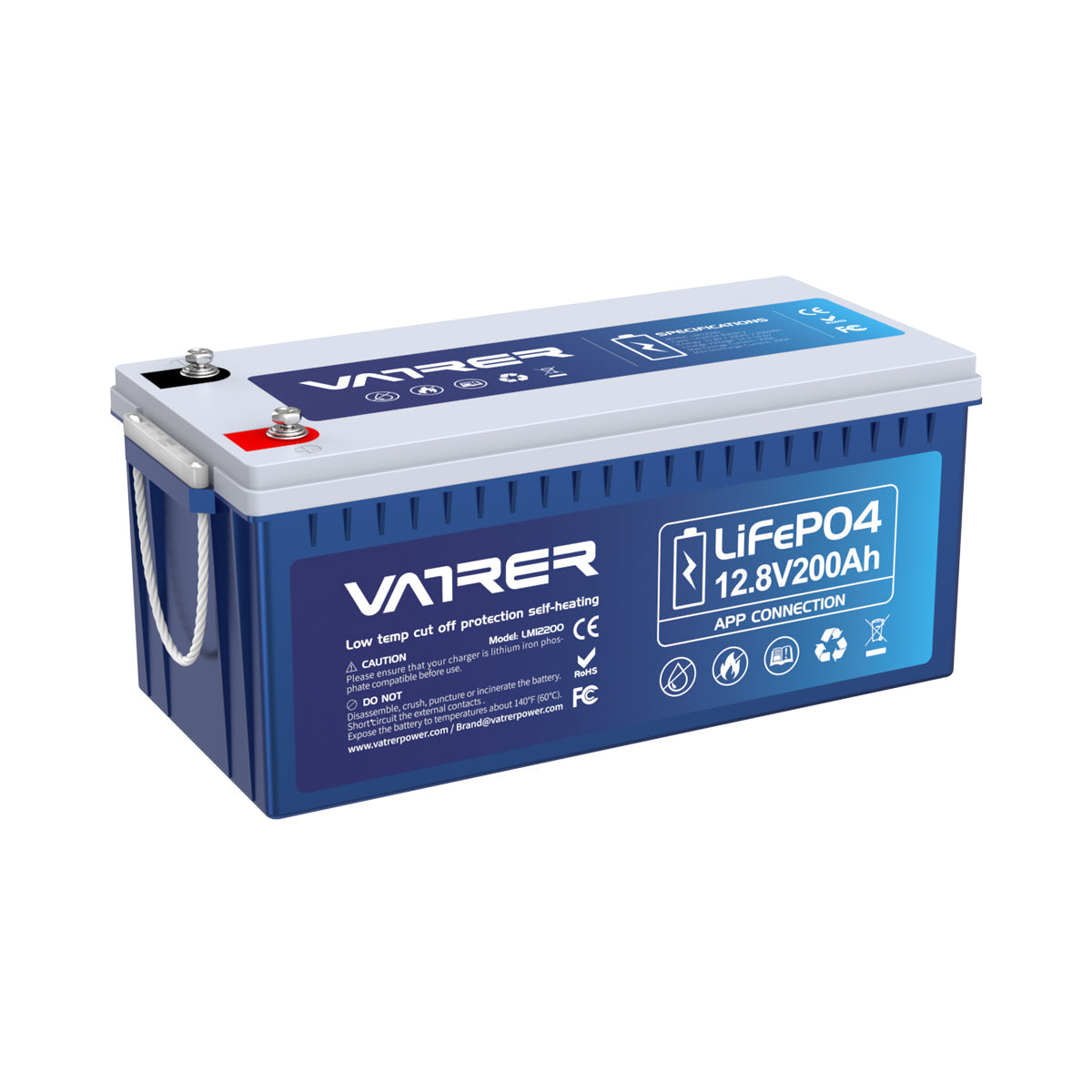
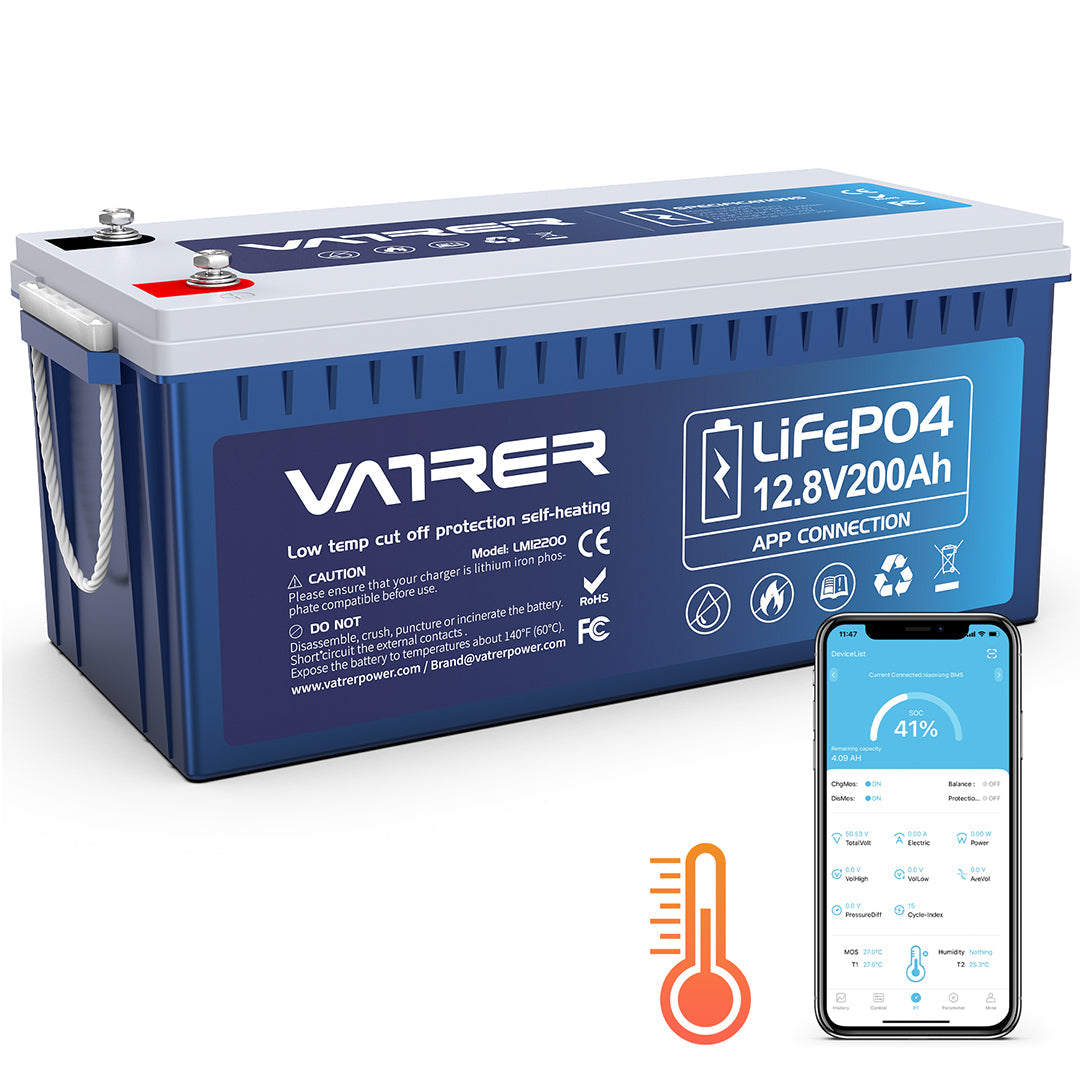
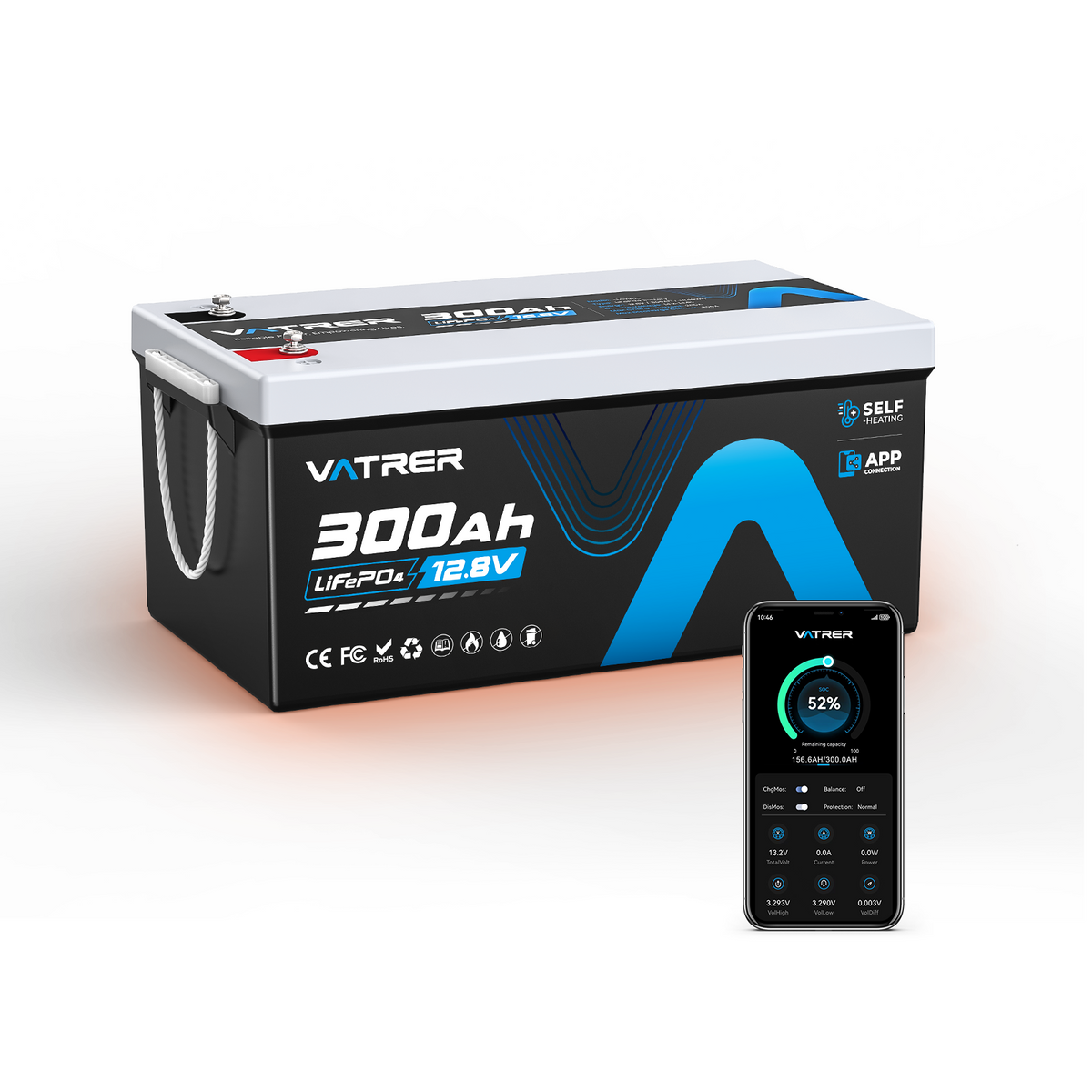
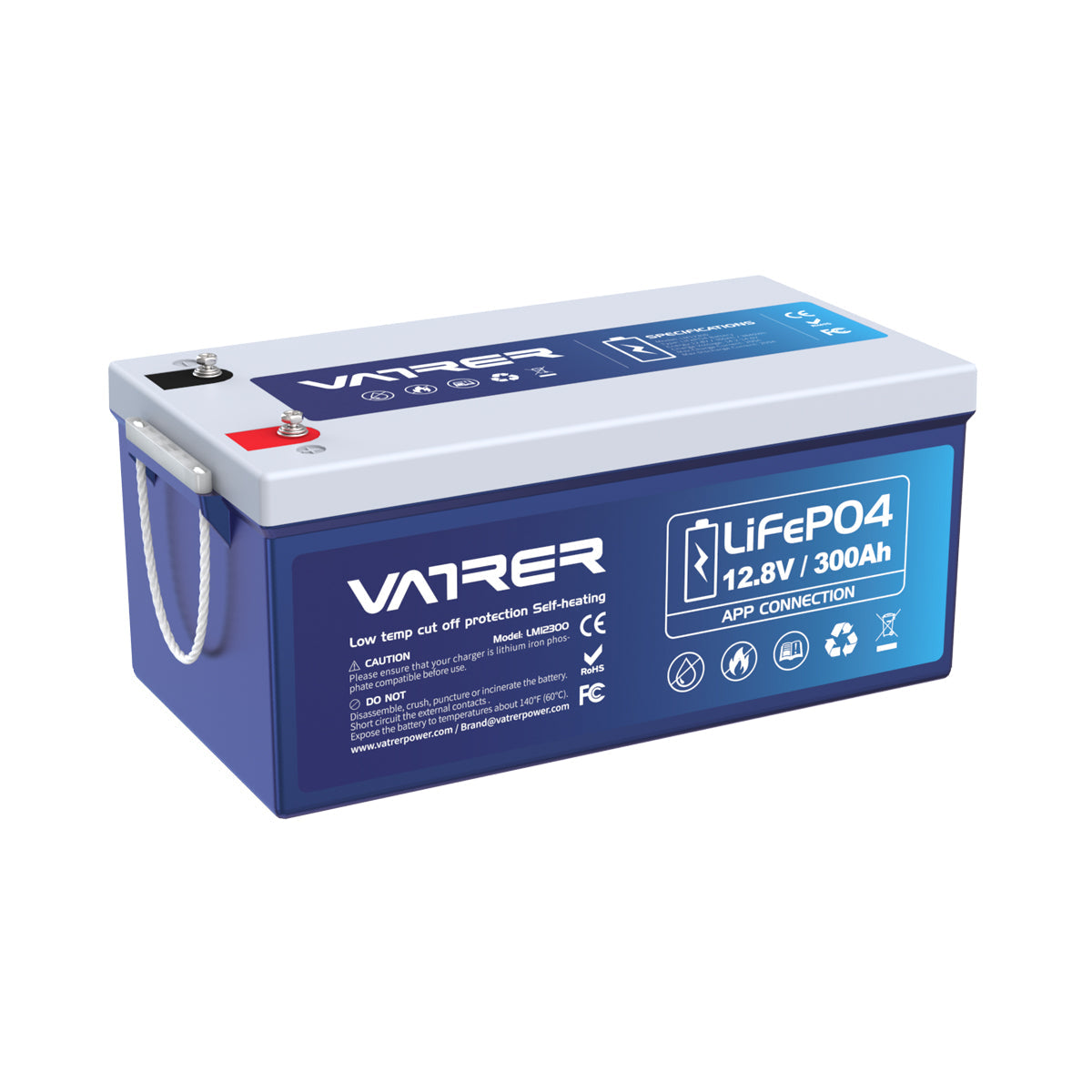

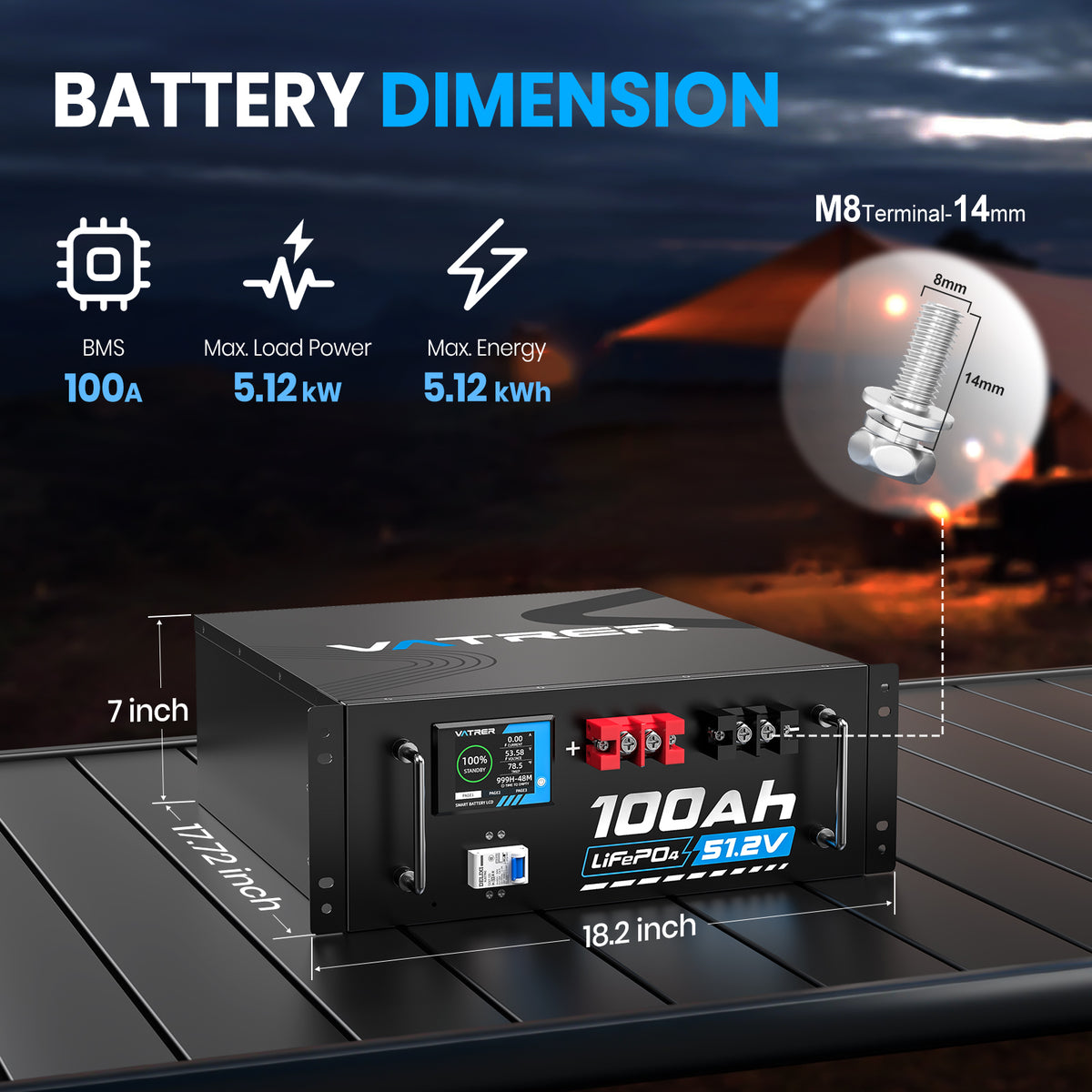
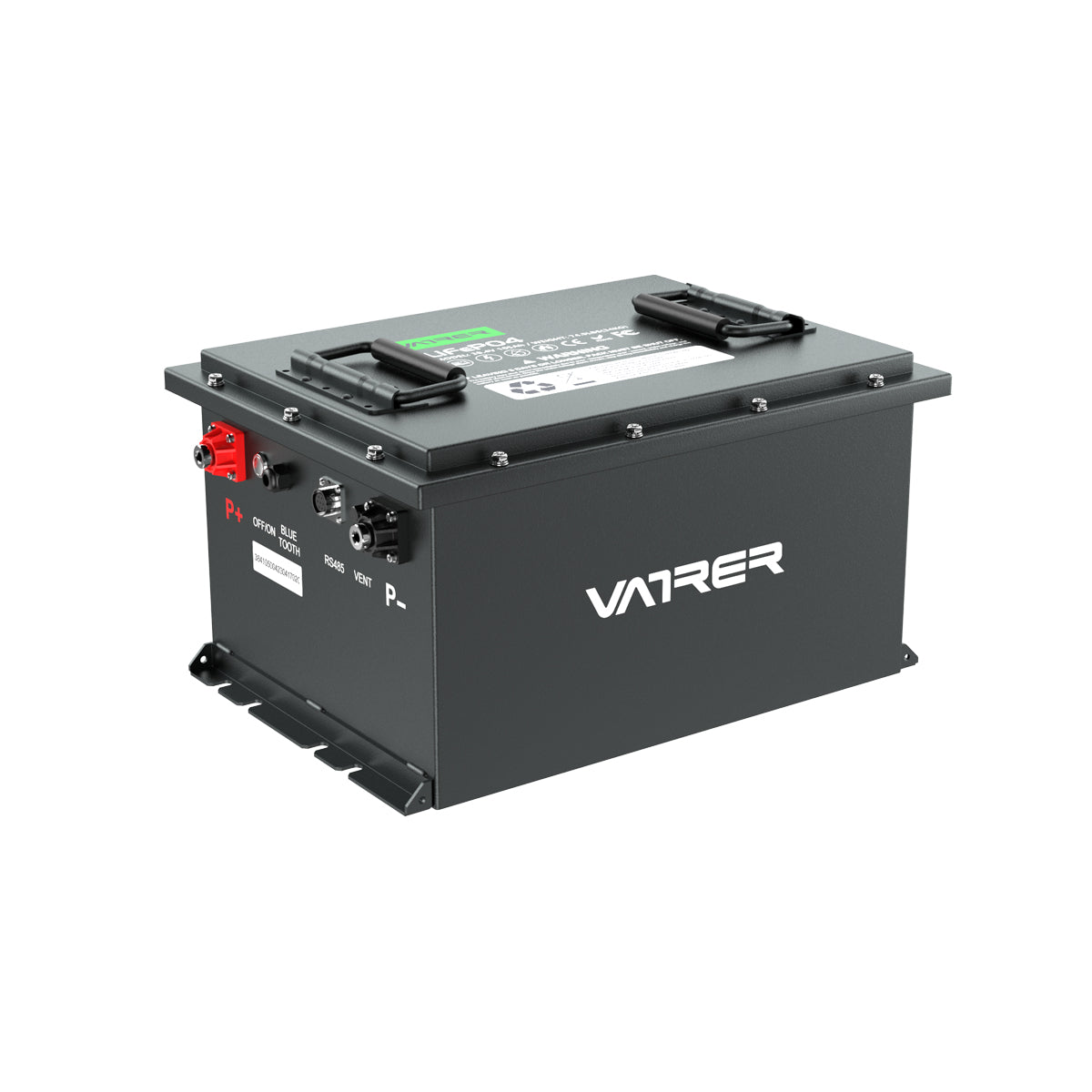
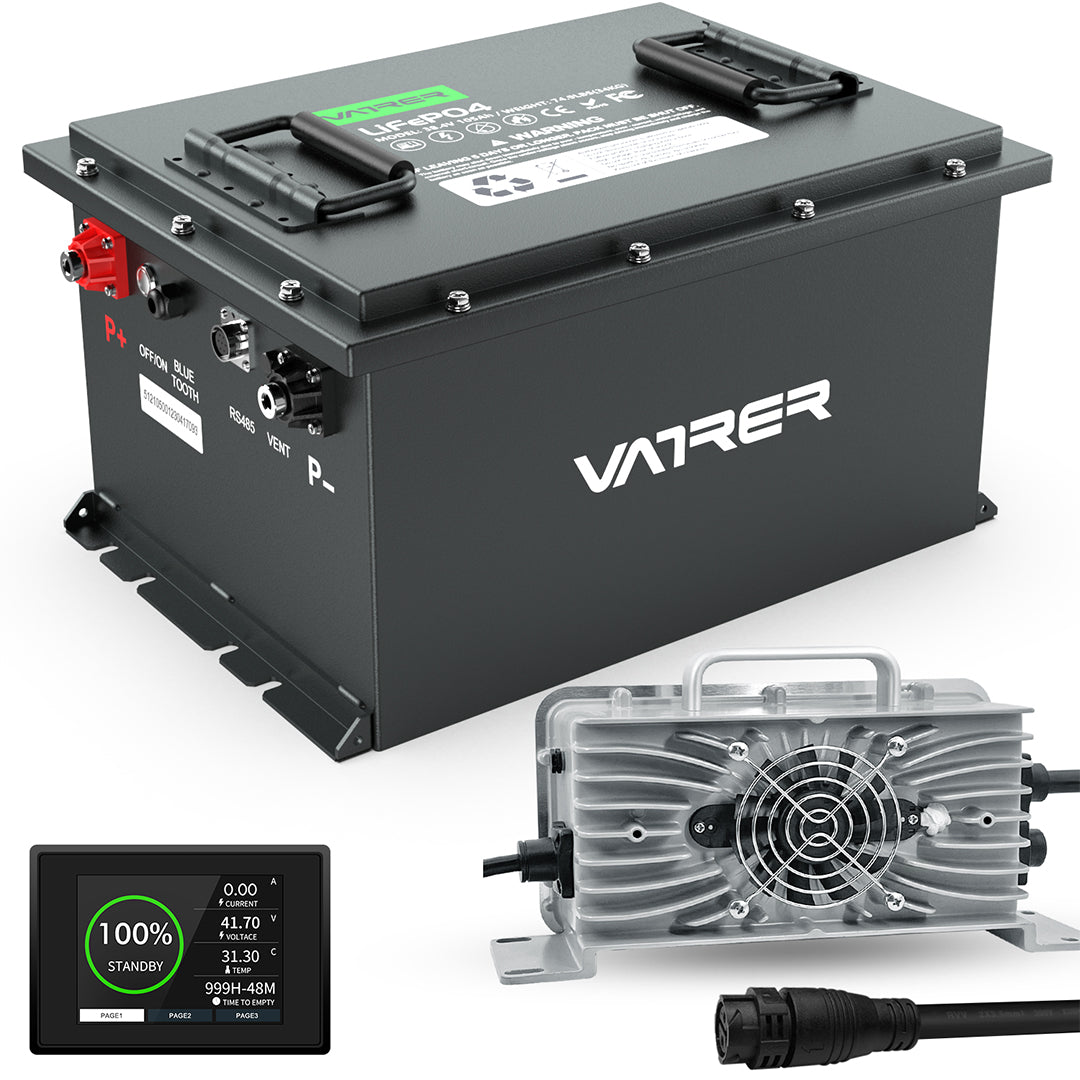
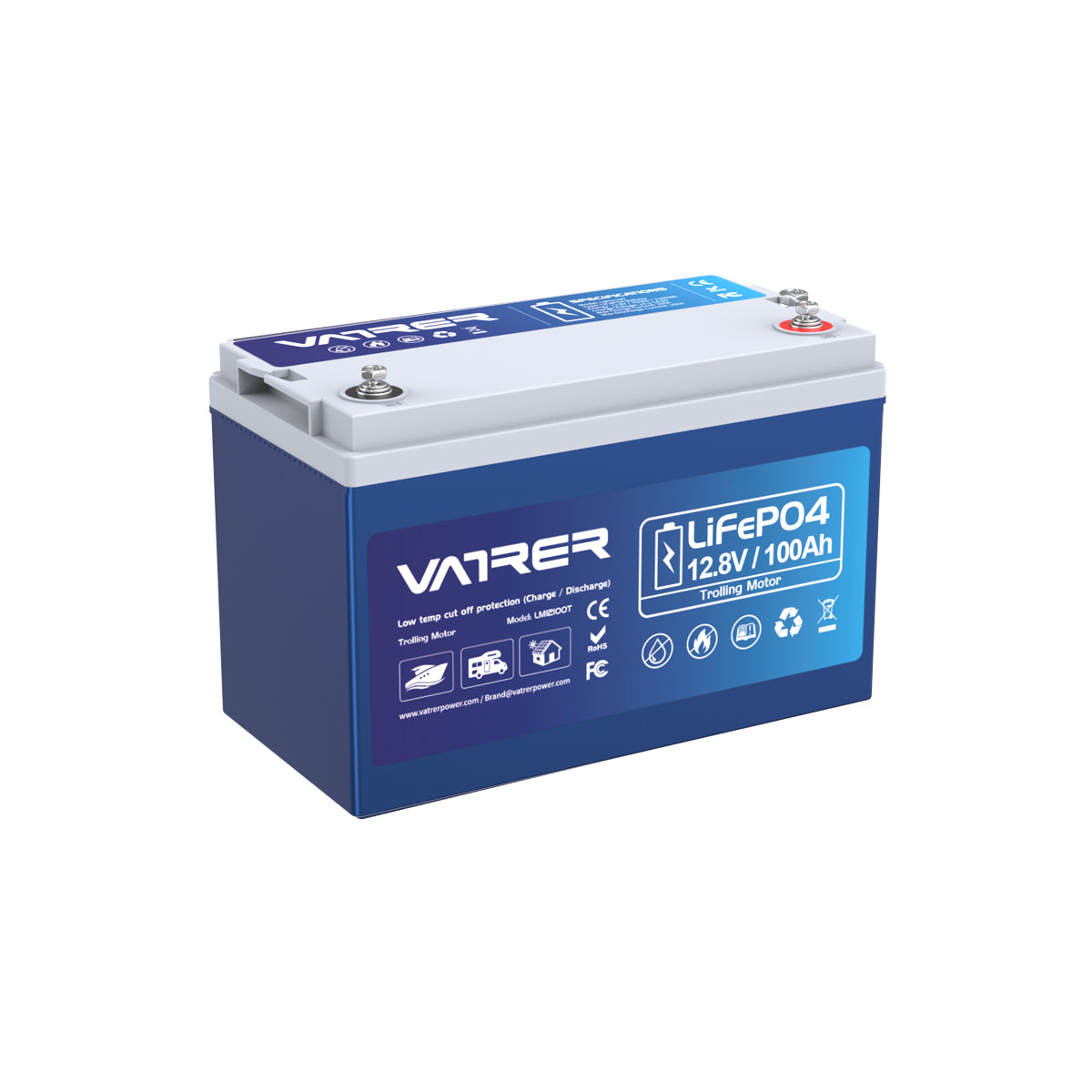
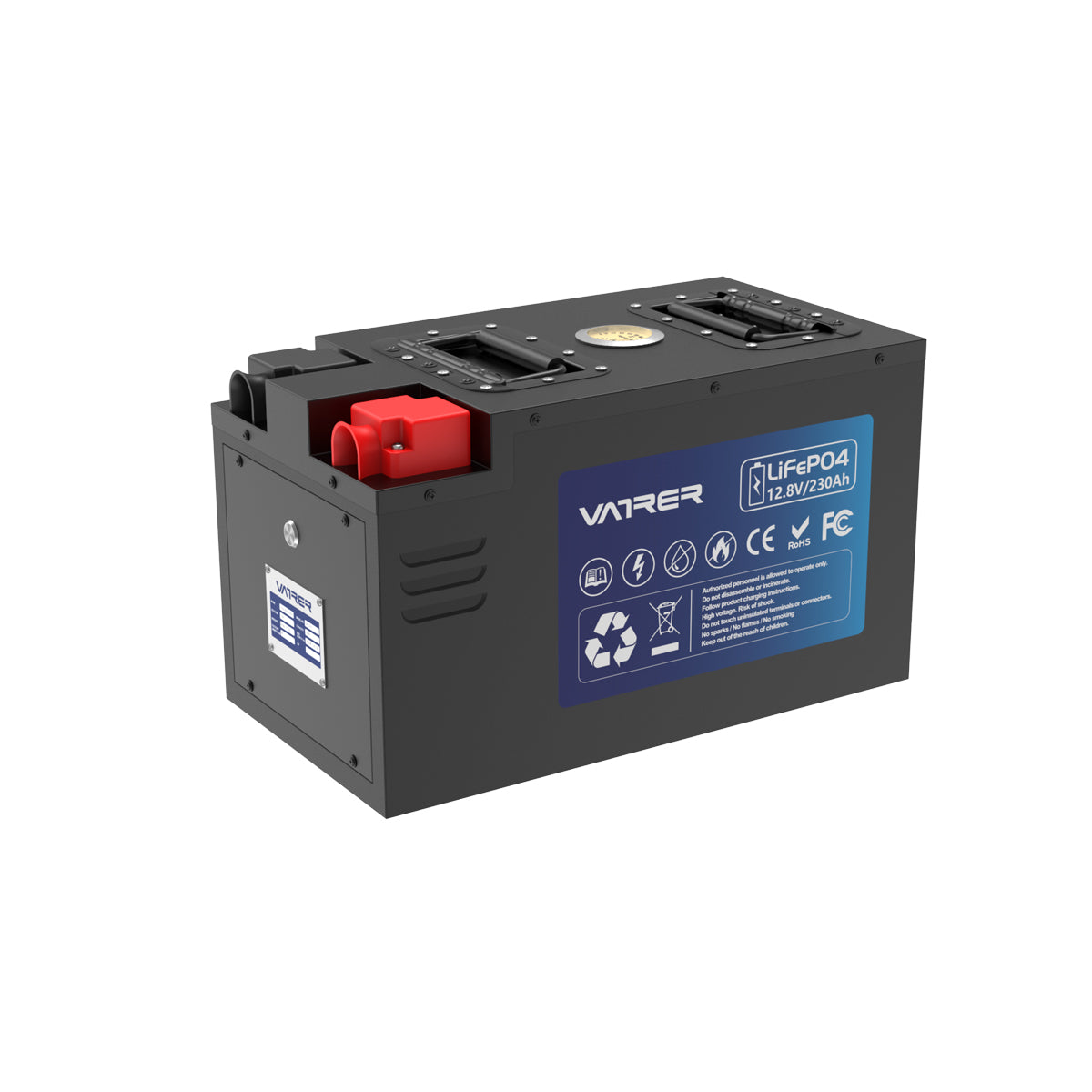
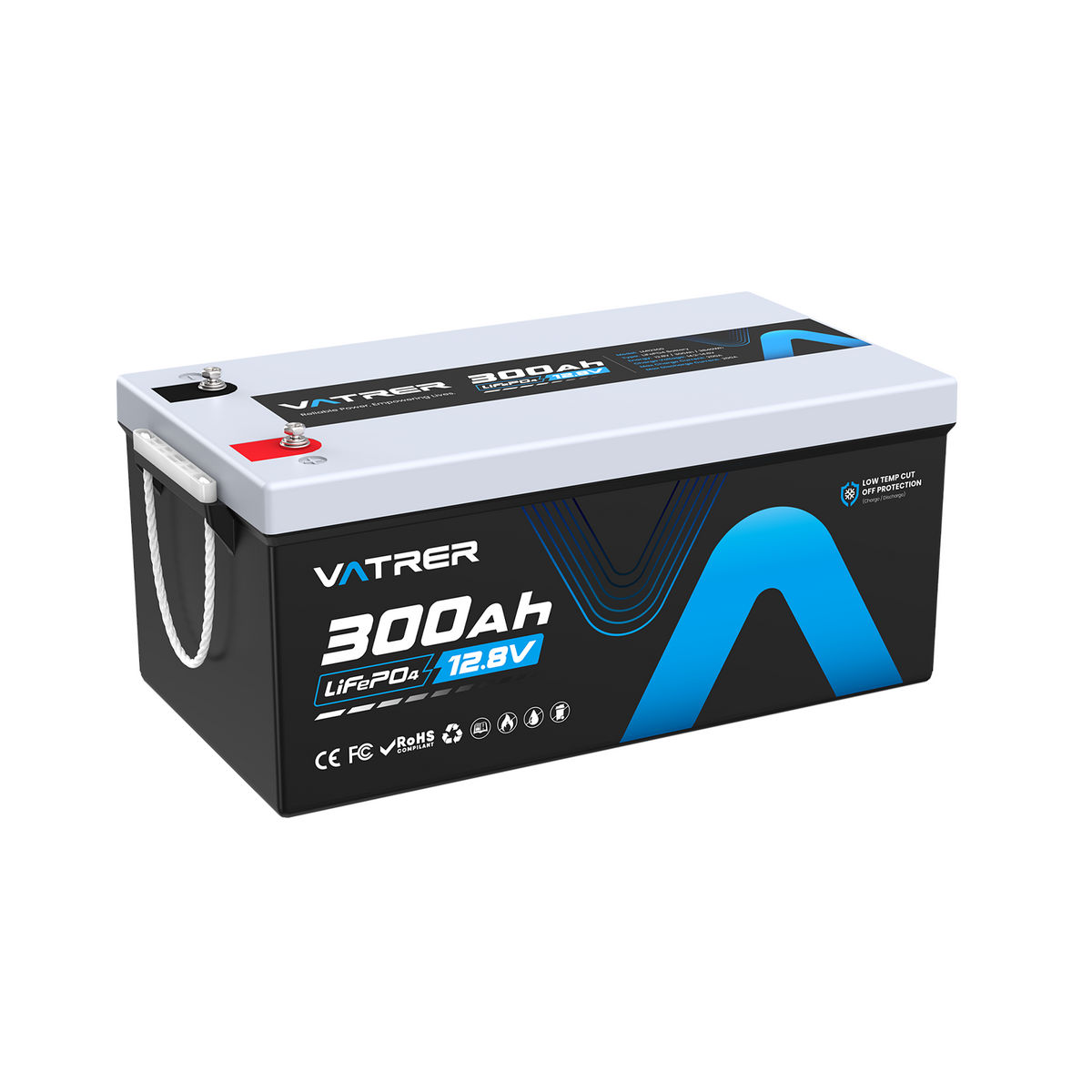
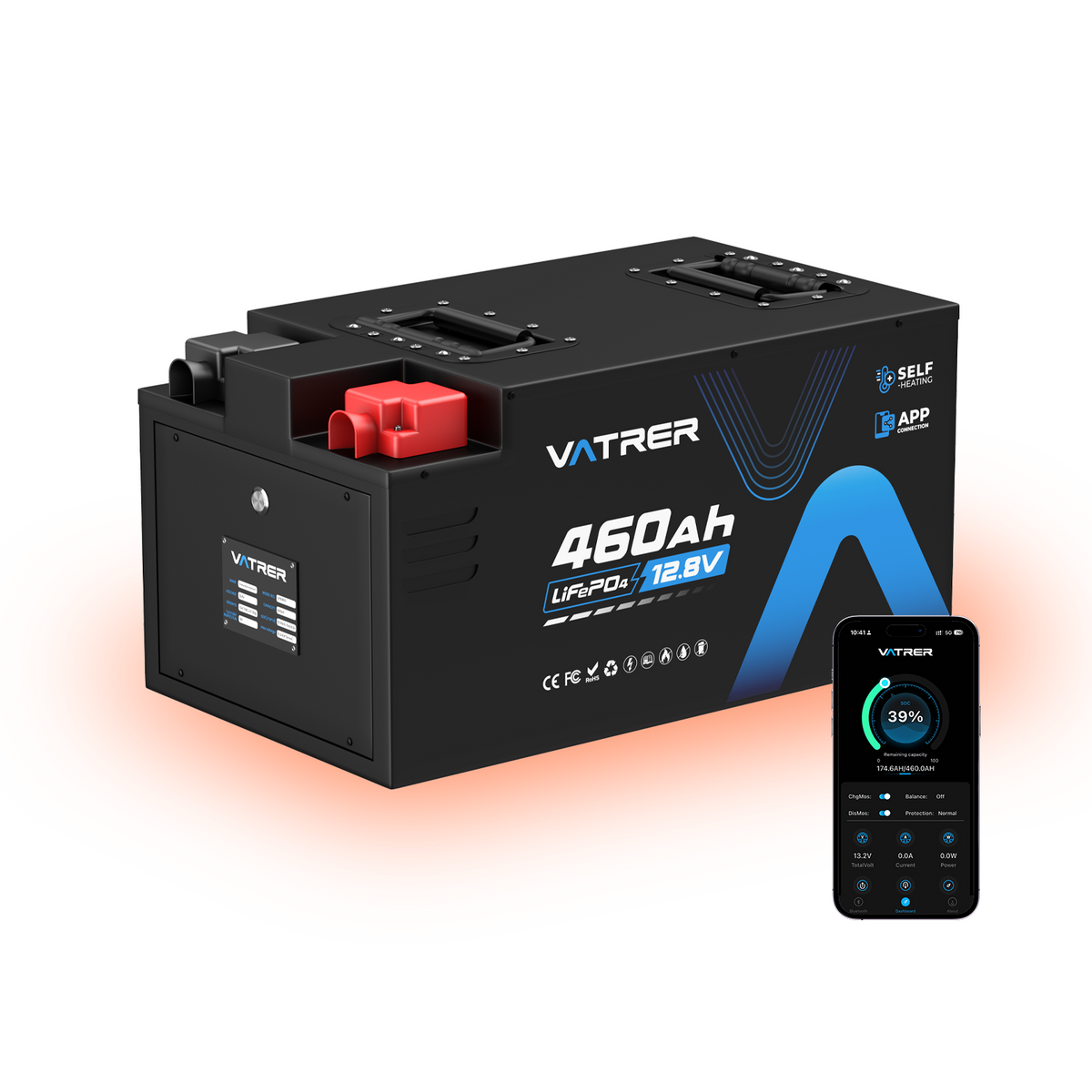

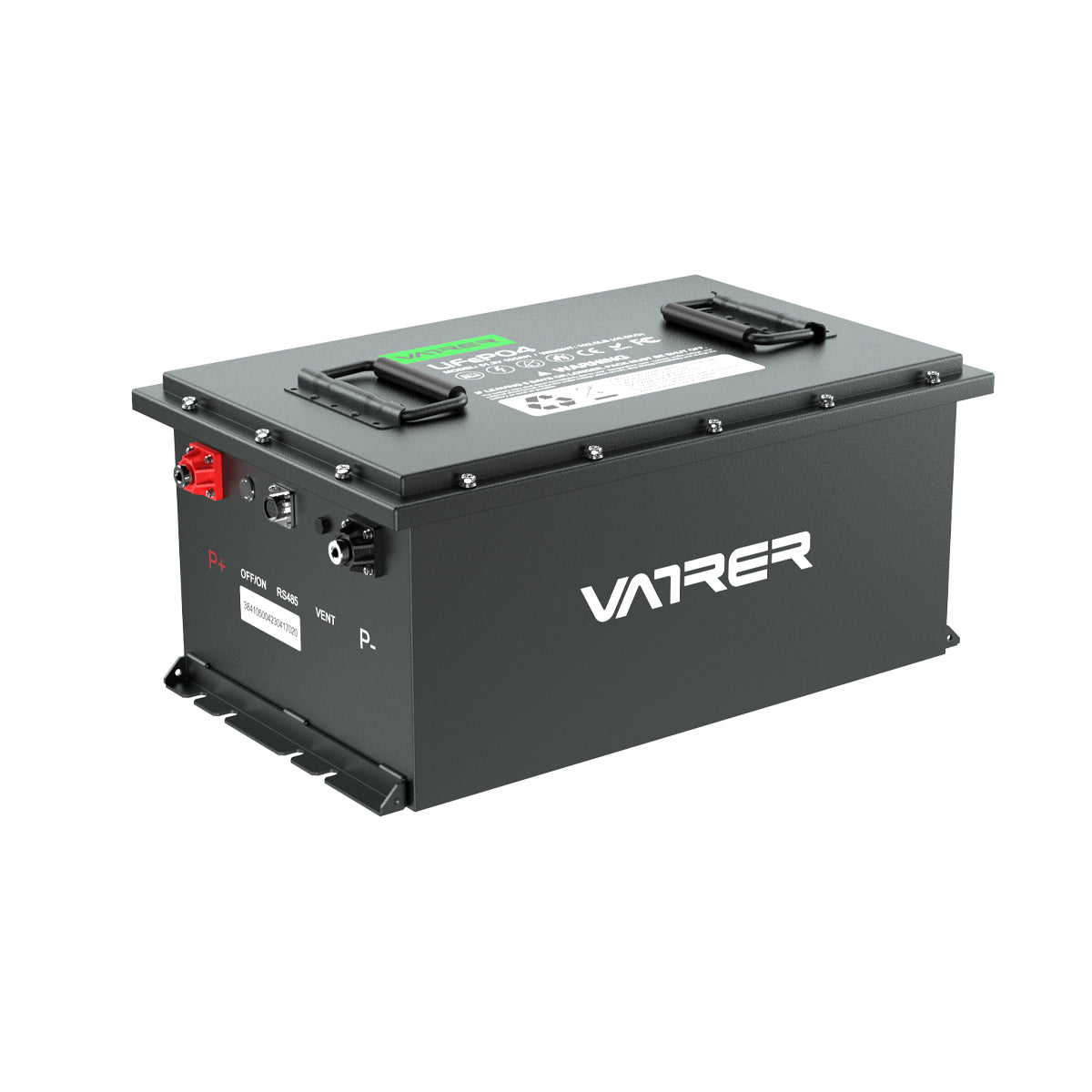
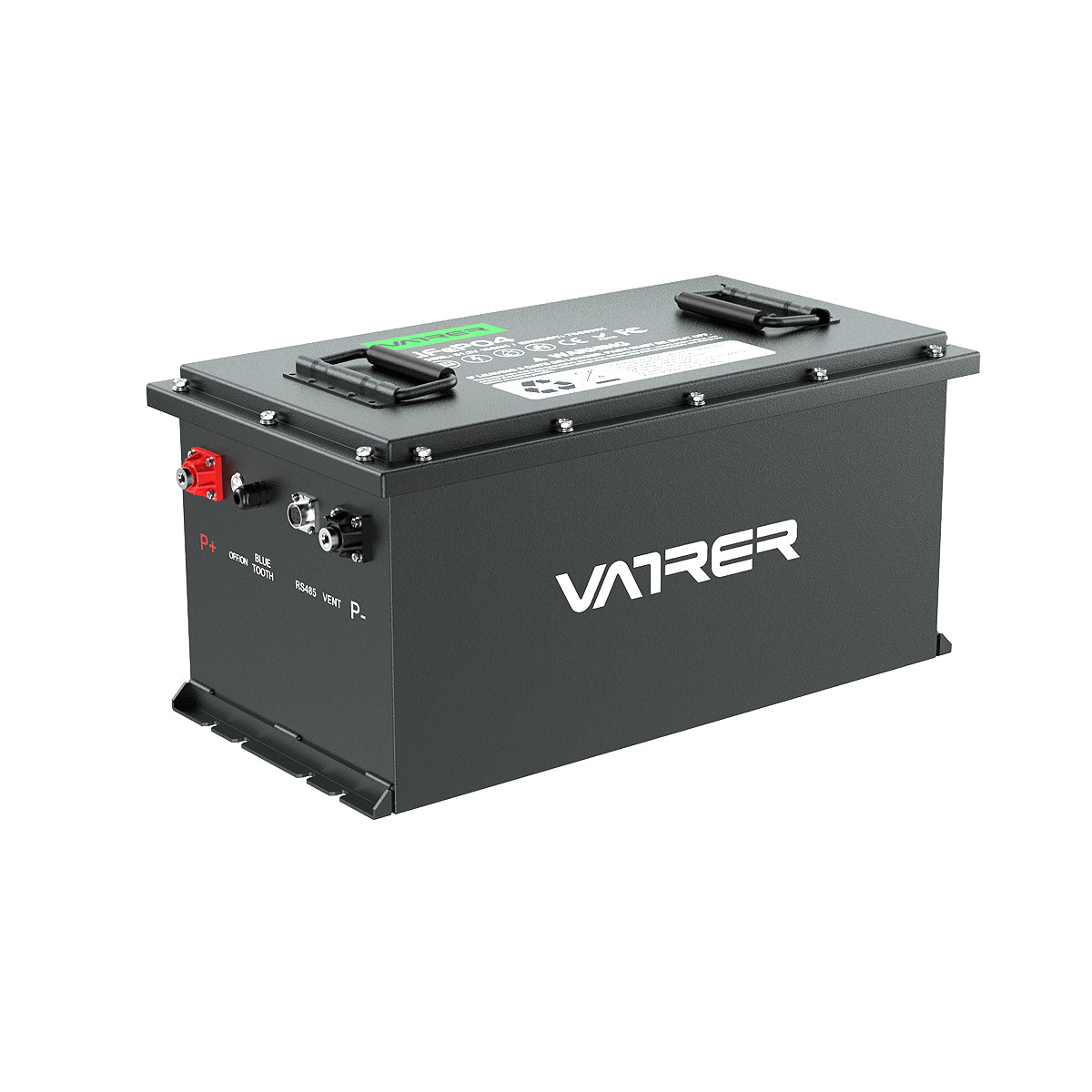

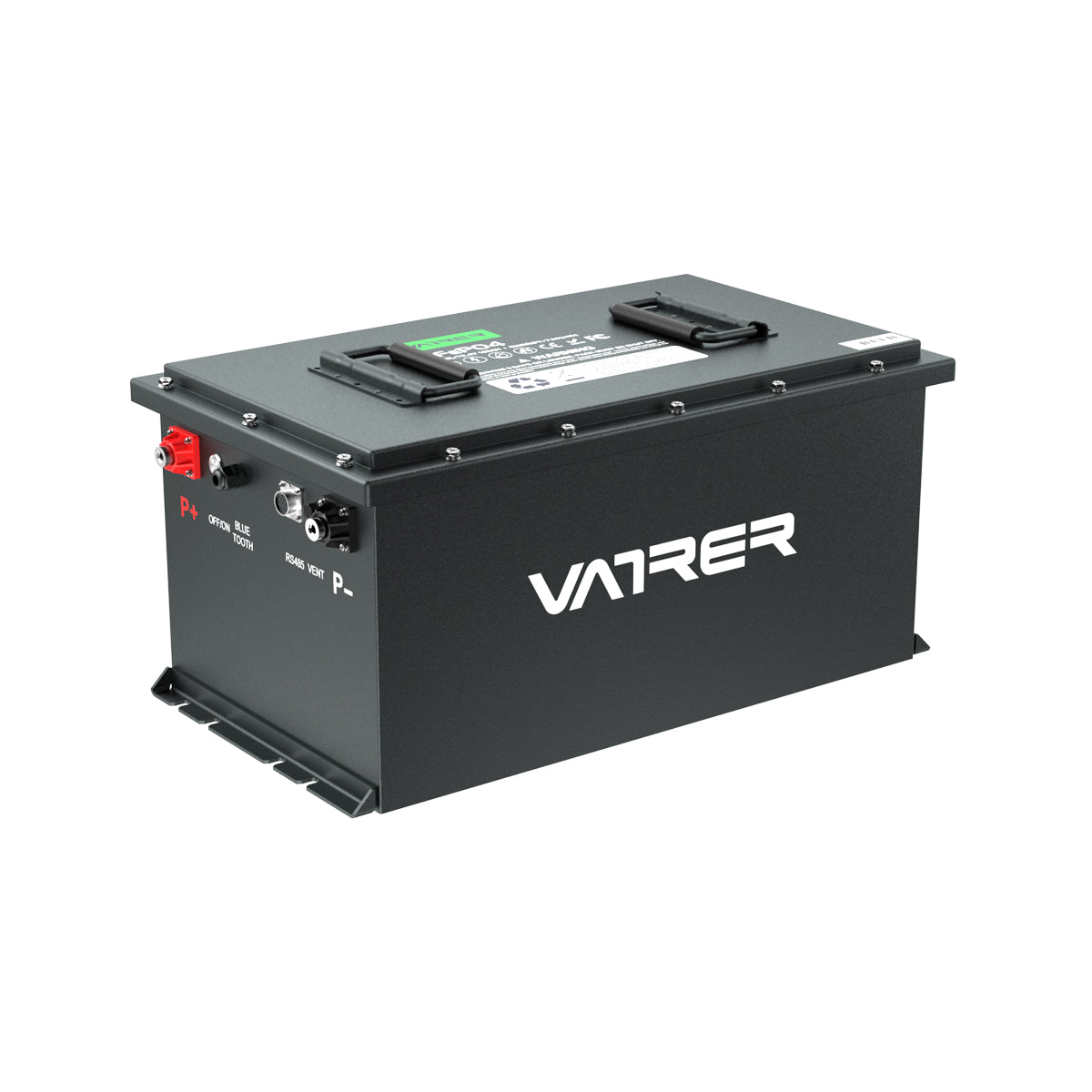


3 comments
CARLOS RODRIGUEZ
My order 3727 came with a defective Golf Cart Battery Meter LCD Display. I was writing that a replacement was needed. Can you give me status on my replacement. Thanks
My order 3727 came with a defective Golf Cart Battery Meter LCD Display. I was writing that a replacement was needed. Can you give me status on my replacement. Thanks
Zachary
Dear George McAtee,
Thank you for choosing Vatrer batteries and for sharing your experience with us. We are concerned about the issues you’ve encountered and would like to offer some insights and advice.
Firstly, it’s important to note that the Vatrer 12V 100Ah LiFePO4 batteries were primarily designed for energy storage and backup power systems, not specifically for power applications. As such, they may not perform optimally under the high-load, continuous output demands of motive applications, such as electric vehicles or golf carts.
When using multiple batteries in series to power a golf cart, it is crucial that all batteries have the same voltage and capacity, ideally from the same production batch. Additionally, the specifications and lengths of all connecting wires should be consistent to avoid voltage drop and uneven current distribution.
Regarding the issue of a wire heating up, this could be due to the wire being underspecified for the current passing through it, leading to increased resistance and heat accumulation. We recommend checking and upgrading to higher-specification wires to ensure safety and efficient operation of your battery setup.
To check for any underperforming batteries, you can measure the voltage and possibly the internal resistance of each battery using a voltmeter or multimeter. All batteries should have similar voltage readings, and internal resistance should be relatively low. If a battery shows significantly lower voltage than others, or if the internal resistance is abnormally high, it might indicate a problem with that battery.
Given your specific needs, we recommend considering a battery system specifically designed for motive applications, as these systems are engineered to provide more reliable performance under high-load conditions and have a longer lifespan.
Should you need further assistance or have other questions, please feel free to contact us. We are committed to ensuring that your equipment operates safely and effectively.
Wishing you health and productivity!
Best regards,
Vatrer Customer Service Team
Dear George McAtee,
Thank you for choosing Vatrer batteries and for sharing your experience with us. We are concerned about the issues you’ve encountered and would like to offer some insights and advice.
Firstly, it’s important to note that the Vatrer 12V 100Ah LiFePO4 batteries were primarily designed for energy storage and backup power systems, not specifically for power applications. As such, they may not perform optimally under the high-load, continuous output demands of motive applications, such as electric vehicles or golf carts.
When using multiple batteries in series to power a golf cart, it is crucial that all batteries have the same voltage and capacity, ideally from the same production batch. Additionally, the specifications and lengths of all connecting wires should be consistent to avoid voltage drop and uneven current distribution.
Regarding the issue of a wire heating up, this could be due to the wire being underspecified for the current passing through it, leading to increased resistance and heat accumulation. We recommend checking and upgrading to higher-specification wires to ensure safety and efficient operation of your battery setup.
To check for any underperforming batteries, you can measure the voltage and possibly the internal resistance of each battery using a voltmeter or multimeter. All batteries should have similar voltage readings, and internal resistance should be relatively low. If a battery shows significantly lower voltage than others, or if the internal resistance is abnormally high, it might indicate a problem with that battery.
Given your specific needs, we recommend considering a battery system specifically designed for motive applications, as these systems are engineered to provide more reliable performance under high-load conditions and have a longer lifespan.
Should you need further assistance or have other questions, please feel free to contact us. We are committed to ensuring that your equipment operates safely and effectively.
Wishing you health and productivity!
Best regards,
Vatrer Customer Service Team
George McAtee
I purchased 4 – 12 volt lithium phosfate batteries (Vatrer) but my distance range is only 3/4 of 1 mile. Then I run out of power.
I charge with your charger, 48 volts, overnight.
I’m using it on my farm to save my legs as I’m 73.
Continues driving, 1/4 to 1/2 miles at a time drains the batteries and it quits. Short 100 yard trips, lasts all day.
When I take a passenger the cart runs out of power in 1/2 mile.
I have it wired in a series and have a new solinoid. The cart wants move but won’t because low power.
It’s a 2005 Club Car. No lights or accessories to be a drain.
Good acceleration and goes faster than I want to go. Faster than the lead batteries, easily.
One wire does get hot. The rest are cool to the touch.
Maybe to small of a wire, heating up causing the batteries to shut down? My property is hilly, power to go up and have to use the brake coasting down.
These are 100ah batteries.
Could one battery be bad?
How to test for that?
In setting them up , I followed your directions, balancing them in parallel, then charged them in a series, then installed them with fresh cables.
What are your thoughts?
I purchased 4 – 12 volt lithium phosfate batteries (Vatrer) but my distance range is only 3/4 of 1 mile. Then I run out of power.
I charge with your charger, 48 volts, overnight.
I’m using it on my farm to save my legs as I’m 73.
Continues driving, 1/4 to 1/2 miles at a time drains the batteries and it quits. Short 100 yard trips, lasts all day.
When I take a passenger the cart runs out of power in 1/2 mile.
I have it wired in a series and have a new solinoid. The cart wants move but won’t because low power.
It’s a 2005 Club Car. No lights or accessories to be a drain.
Good acceleration and goes faster than I want to go. Faster than the lead batteries, easily.
One wire does get hot. The rest are cool to the touch.
Maybe to small of a wire, heating up causing the batteries to shut down? My property is hilly, power to go up and have to use the brake coasting down.
These are 100ah batteries.
Could one battery be bad?
How to test for that?
In setting them up , I followed your directions, balancing them in parallel, then charged them in a series, then installed them with fresh cables.
What are your thoughts?